Read about what our Postdocs say
You are planning to join a lab at DKFZ for your postdoc?
You are looking for a working environment at an institute which is international, fosters interdisciplinary research and builds on scientific exchange and excellence?
Come and work at the German Cancer Research Center!
But first have a look at what our postdocs say about working at the institute.
Amy Danson, Postdoc in the Division of Regulatory Genomics and Cancer Evolution
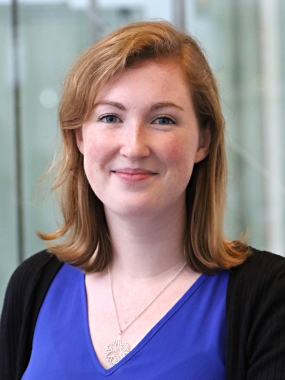
© privat
I was initially driven to pursue a career as a postdoctoral researcher by my desire to eventually become an independent group leader. The idea of shaping the research direction and exploring my own interests appealed to me, making the postdoc phase a natural progression. In my current role, I'm focused on studying the aging process in bone marrow across different mouse species. Yet, my curiosity extends to broader questions about the nature of aging itself.
A particularly fulfilling aspect of my postdoc journey has been mentoring both Master's and PhD students. This responsibility has refined my communication skills and organizational abilities. The challenges of managing a diverse group have taught me valuable lessons in interpersonal dynamics and optimization.
My favorite aspects of the job are the incredible people I get to work with – their creativity, intelligence, and passion are truly inspiring. Additionally, being among the first to learn about exciting discoveries is a privilege that I deeply appreciate.
However, challenges do arise. I've encountered interruptions and skepticism about my expertise during meetings, which I find discouraging. This seems to be an issue more prevalent among female postdocs, leading me to assume the role of the Equal Opportunities Officer to address such disparities. The uncertainty of temporary contracts and the heavy emphasis on publications also pose hurdles.
As for recognition, I deeply value when my supervisor advocates for me, whether it's endorsing my perspectives in discussions or endorsing me for grants and promotions. I believe leaders should champion postdocs, especially underrepresented groups.
Looking ahead, my trajectory diverges from the traditional path. While I remain captivated by scientific questions, I plan to transition into a full-time role as the Equal Opportunities Officer. Assisting and engaging with individuals, alongside gaining insight into the institute's broader operations, have been particularly rewarding experiences for me.
This interview has been edited for length and clarity.
James Cleland, Postdoc in the Division of Regulatory Genomics and Cancer Evolution
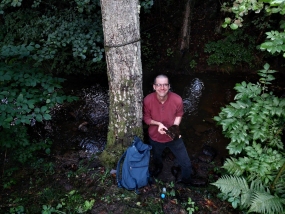
© privat
Recognizing my need for growth before leading my own research group, I chose to pursue a postdoc position in a training environment that aligns with my aspirations as a scientific leader. My research interests are divided between the project I'm currently working on - delving into the susceptibility of male reproductive organs to cancer - and my passion for understanding the regenerative capabilities of planarian flatworms, a subject I fell in love with during my PhD.
The most rewarding aspect of my postdoc experience has been co-leading a diverse team across different institutions towards a complex problem. Unlike my solitary work during my PhD, intensive collaboration now prepares me well for a future in science. The flexibility to work when I can, focus on exciting projects, and collaborate freely with exceptional people are the highlights of my job.
Although I am fortunate to have supportive labs and well-funded projects, I still grapple with the challenge of feeling inadequate and the fear of not producing significant publications for future faculty positions. Despite this, I strive to enjoy the process of conducting meaningful research.
Personally, I feel appreciated and well-compensated as a postdoc, particularly due to the contrast with less supportive environments in other countries. Reflecting on my positive situation, I believe postdocs could benefit from project grant opportunities, accessible childcare, management training, and the autonomy to run projects without undue micromanagement or competition concerns.
Looking ahead, I aim to transition from my postdoc role to leading my own research lab, even though the specifics of its location remain uncertain due to personal circumstances. However, I am resolute in my desire to create an engaging and productive space where motivated individuals can thrive while exploring the fascinating world of planarian flatworm regeneration.
This interview has been edited for length and clarity.
Ivana Winkler, Postdoc in the Division of Somatic Evolution and Early Detection
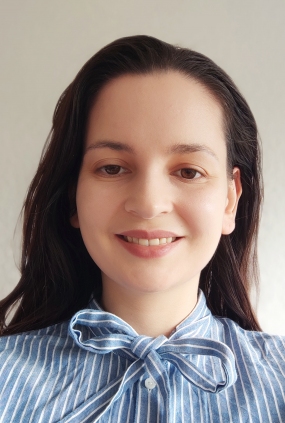
© privat
I was inspired to embark on a career as a postdoctoral researcher due to my background in molecular biology and gradual shift towards bioinformatics during my PhD. Seeking to enhance my bioinformatics and statistical skills, I found the postdoc role to be an ideal opportunity. My current research focus centers around single-cell RNA-seq and spatial transcriptomics analyses within the female reproductive tract.
The most fulfilling aspect of my postdoc experience has been the autonomy to delve into my research interests, which has allowed me to gain practical expertise beneficial for my future career growth.
What I cherish most about this role is its perpetual dynamism; each day presents a new opportunity to learn and grow.
While the postdoc journey brings enriching experiences, I grapple with the challenge of striking a balance between my professional commitments and personal life. Furthermore, the transient nature of the postdoc position introduces uncertainty into my future career path and complicates my family planning.
In terms of recognition, initiatives like the postdoc appreciation week resonate with me, as they spotlight the significant contributions of postdocs to the realm of research and science. Such gestures acknowledge the value of our efforts and foster a sense of community within the academic world.
Loan Vulliard, Postdoc in the Division of Systems Immunology and Single Cell Biology
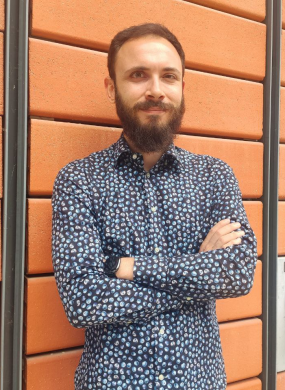
© privat
I decided early on to dedicate my work to the exploration of the frontiers between health and disease. Led by my enthusiasm for computational methods and my curiosity, I took an opportunity that presented itself at the DKFZ and supported by an AI Health cluster fellowship. Here, I try to uncover the spatial organization within cancer tissues, using interpretable deep learning models.
My postdoctoral experience has been truly rewarding so far, mostly due to my immersion in a vibrant and inspirational research community. I especially enjoy two aspects of my current role. First, collaborating with researchers at different career stages, united by their dedication to cancer immunology, contributes to a lively and stimulating work environment. Second, the support and resources provided for my project development are invaluable, ensuring that the project will come to fruition.
Nevertheless, this postdoc journey also presents challenges. Adapting to a new country mandates an openness to change and learning from diverse experiences. Integrating into a new research group requires finding my unique role while contributing effectively. Navigating between collaborative efforts and personal research goals necessitates proactive communication. Guiding my scientific trajectory involves strategic planning. Ultimately, these challenges fuel my growth as a researcher.
Feeling valued as a postdoc encompasses various dimensions. Acknowledging and promoting our contributions not only drives our commitment to advancing the field but also underscores the societal impact of biomedical research. An environment that nurtures personal and professional growth through mentorship, skill enhancement, and educational support is genuinely gratifying.
For the future, I aspire to provide new insights into the molecular heterogeneity underlying health and disease, and to empower others to do the same. Bridging computational innovation with experimental findings and medical applications to impact patient care requires interdisciplinary collaboration – a goal I strive toward.
José Vedelago, Postdoc in the Division of Medical Physics in Radiation Oncology
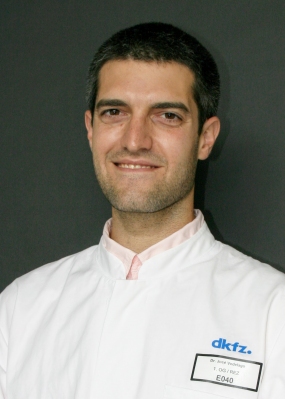
© privat
My journey as a postdoctoral researcher has been fuelled by a deep passion for physics and a desire to contribute to scientific advancements for the betterment of others. Specifically, my research focuses on radiotherapy treatments for cancer patients, a pursuit that resonates with my commitment to making a positive impact on healthcare.
The most fulfilling aspect of my postdoc experience thus far has been working with and supervising students. Guiding them through their projects, witnessing their growth in scientific expertise, and assisting them in achieving their personal and professional aspirations brings me immense satisfaction. Interacting with these aspiring minds enriches my own understanding and keeps me learning daily.
Networking with colleagues from Heidelberg and establishing collaborations with researchers worldwide are among my favorite aspects of the job. The opportunity to collaborate with diverse minds and contribute to pushing the boundaries of scientific knowledge is truly invigorating.
However, the transient nature of postdoc positions presents a significant challenge. The lack of stability can influence decision-making and future planning, a hurdle many postdocs can relate to.
As a postdoc, I find acknowledgment to be a meaningful form of appreciation. It energizes me to continue my endeavors. Looking ahead, I envision a continued path in science. Currently, I serve as the Principal Investigator of a project funded by the German Research Foundation at Heidelberg University Hospital, which represents a substantial stride towards a fulfilling career in scientific research. I'm excited to embrace the opportunities that lie ahead and to see where this journey in science will lead me.
Carla Schmidt, Postdoc in the Division of Thoracic Oncology
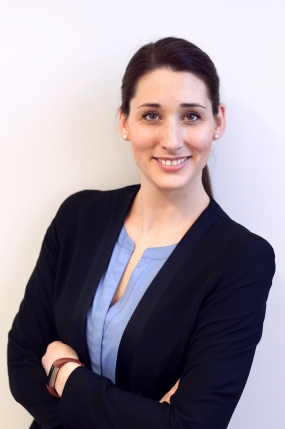
© privat
The passion for science carried on from my PhD days, leading me to believe that an academic research path would be my true calling. Currently, my focus lies in translational research, and I'm engrossed in a project that aims to establish an extensive catalog of FGFR point mutations and their responses to various FGFR inhibitors.
One of the most gratifying aspects of my postdoc experience thus far has been the privilege of working under an open-minded and supportive group leader. This trust in my abilities has granted me the autonomy to explore my own research queries, initiate new project concepts, and even take on supervisory responsibilities. Furthermore, the potential impact of my research on tailoring cancer treatments to individual patients is a constant motivator.
The allure of my role extends to the teamwork of dedicated young researchers, all united by a shared commitment to a research domain I deeply care about. This environment, coupled with the liberty to propel projects that genuinely captivate my curiosity, truly embodies the heart of my job.
Yet, challenges do arise in this endeavor. The pressure to excel, publish prolifically, and establish oneself as a scientist looms large, with the looming question of academic longevity ever present. The constraints of time eligibility for fellowships and support programs further compound this pressure.
For my contributions as a postdoc, all I seek is recognition for the significance of my daily efforts, acknowledging the extra hours and weekends dedicated to driving projects forward with vigor. It's my belief that the often unrecognized or unacknowledged overtime culture pervasive in academia should not be deemed normal or obligatory. Knowing that such circumstances are sometimes unavoidable, a system of compensation and recognition for this extra commitment would be appropriate.
Anna Kolodziejczak, Postdoc in the Division of Pediatric Oncology
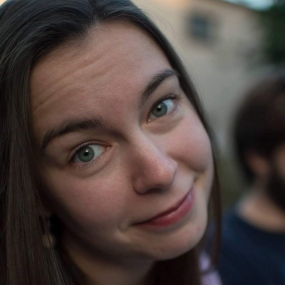
© privat
I was drawn to the path of a postdoctoral researcher by a dual ambition: my personal growth and the desire to enhance the lives of those affected by cancer. Currently, my focus revolves around devising innovative treatments for individuals with cancer predisposition syndromes.
A standout moment during this postdoc journey has been the publication of a cohort study assessing the clinical outcomes of Li-Fraumeni syndrome patients. The thought that our work could directly impact the health of children propels me to delve deeper into research and boosts my self-assurance.
The facets I cherish most about this role are the connections with diverse individuals that the position at DKFZ affords me. Meeting people from various backgrounds broadens my viewpoint on scientific matters and career progress.
However, the challenges we face as postdocs, especially concerning job security in Germany, loom large. I am optimistic that constructive dialogues with state representatives will pave the way for improvements in our circumstances.
Appreciation as a postdoc resonates through the understanding, encouragement, and support I receive from my supervisor and colleagues. This camaraderie extends both ways, fostering an environment of mutual assistance. Moreover, institutional acknowledgment of mental health concerns and avenues for professional growth underscore their appreciation for my well-being and career evolution.
Gazing beyond my postdoc tenure, I envisage a trajectory leading me into the industry. While opportunities with pharmaceutical companies are on the horizon, my ultimate aspiration is to thrive as a medical writer, synthesizing complex scientific concepts for broader audiences.
Jonny Hertzog, Postdoc in the Division of Virotherapy
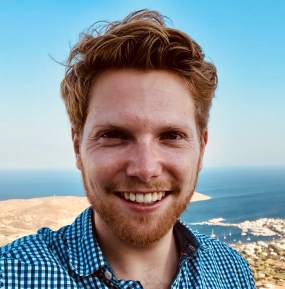
© privat
I was inspired to embark on a career as a postdoctoral researcher by my experiences during my PhD in cell biology of viral infections. The ability to conceptualize research questions, generate hypotheses, and validate them through hands-on experimentation enthralled me. This ownership of projects and the pursuit of scientific answers fueled my passion. The prospect of continuing this approach led me to a postdoctoral position, particularly one at the DKFZ, where I could blend my foundational research background with translational aspects of cancer biology. My current focus revolves around exploring antiviral cell-intrinsic innate immune responses and their pivotal role in shaping effective anti-tumor immune reactions.
The most rewarding facet of my postdoc journey thus far has been actively contributing to the growth of junior staff. Guiding them, witnessing their development from students to scientists, and passing on my skills have been profoundly fulfilling. This role has fostered my personal development in terms of both technical and interpersonal skills. Teaching and mentoring have prompted introspection, refining my beliefs and methodologies.
The appeal of being a Postdoc lies in the autonomy and adaptability it offers. This pertains to both the independence in scientific pursuits and the flexibility in structuring work days and work-life balance.
Despite the rewards, the challenges of postdoctoral roles include the precarious job conditions and the lack of support from science funders for long-term employment. Not everyone aspires to be a group leader, and there should be more backing from academic institutions and funders for postdocs exploring diverse roles within academia. Evaluations of postdocs often appear tied to specific career ambitions rather than their scientific accomplishments.
As a postdoc, I believe recognition should extend beyond scientific contributions to encompass supervisory and lab management roles. These responsibilities warrant greater acknowledgment and appreciation.
Mikaela Behm, Postdoc in the Division of Mechanisms Regulating Gene Expression
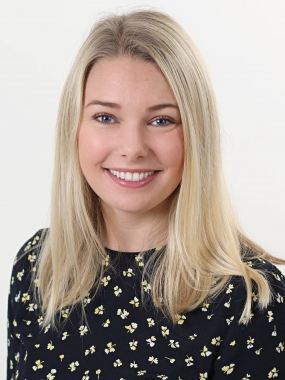
© privat
I was inspired to pursue a career as a postdoctoral researcher primarily by the people who surrounded me. During my time at The Department of Molecular Biosciences, The Wenner-Gren Institute (MBW) at Stockholm University, my co-workers created an environment that was both enjoyable and intellectually stimulating. Their ambition and curiosity motivated me to take on this path. My PhD supervisor, Prof. Marie Öhman, played a pivotal role in supporting my journey, instilling courage in me to embrace the challenge of moving to a new country for postdoctoral research.
Currently, my research interests are focused on understanding the factors that lead some animals to be more susceptible to cancer while others remain resistant.
The most rewarding aspect of my postdoctoral experience thus far has been the exposure to diverse research environments across different countries and laboratories. These opportunities have expanded my horizons, pushing me out of my comfort zone and allowing me to learn from a variety of individuals.
What I cherish most about my job is the excitement of waking up each morning with the potential to make novel discoveries that contribute to science. The dynamic nature of the work, presenting fresh challenges every day, is something I deeply appreciate.
Nevertheless, challenges do arise in my postdoc journey. The pressure to publish frequently and quickly can be overwhelming and stress-inducing, which is something I face and navigate.
As a postdoc, I hope to feel that my work, dedication, and aspirations have a promising future. Looking ahead, I aspire to lead my own research team, a dream I hope to turn into reality in the next phase of my career.
Rajbir Batra, Postdoc in the Division of Cancer Epigenomics
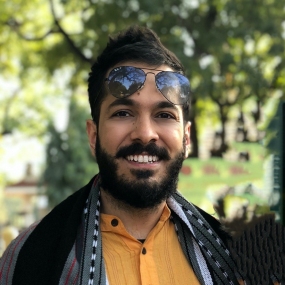
© privat
The DKFZ Postdoctoral Fellowship allowed me to cultivate internal partnerships within DKFZ, paving the way for innovative and interdisciplinary projects within an invigorating environment. The program also served as an exceptional launchpad for my journey towards becoming an independent scientist.
Thanks to unwavering support from the DKFZ Postdoc Program Office and the Grants Office, I successfully secured a Marie Sklodowska-Curie Individual Fellowship. My focus involves leveraging advanced multi-omic technologies, including bulk and single-molecule approaches, to unravel the intricate interplay between epigenomic, genomic, and transcriptomic dysregulation in breast and prostate cancer.
My academic journey thus far has been enriched by competitive fellowships, including the Wellcome Trust PhD fellowship, Commonwealth Trust scholarship, and Clarendon Fund Scholarship. These accolades enabled me to pursue a PhD in Mathematical Genomics and Medicine at the University of Cambridge and earn an MSc in Applied Statistics from the University of Oxford.
Within DKFZ, I've actively engaged in the PostDoc Network Committee (PDN), a vibrant community that extended a warm welcome. This camaraderie among fellow PostDocs was especially significant during the challenging period of 2020-2021. Together, we orchestrated the inaugural virtual DKFZ PostDoc Retreat in Spring 2021, with plans for more enriching events on the horizon.
Beyond DKFZ's walls, I've collaborated with peers from the Netherlands, Italy, the UK, and within DKFZ to establish PostdoCaRe Europe - a network fostering professional and social exchange among postdocs from various Cancer Institutes across Europe. Our efforts culminate in the first interdisciplinary cancer research conference in Heidelberg October 2023.
For those contemplating joining DKFZ, you'll be embraced by a dynamic and diverse research community dedicated to the pinnacle of scientific excellence. This environment offers an ideal platform to cultivate interdisciplinary collaborations and catapult your independent research career forward.
Kim Boonekamp, Netherlands
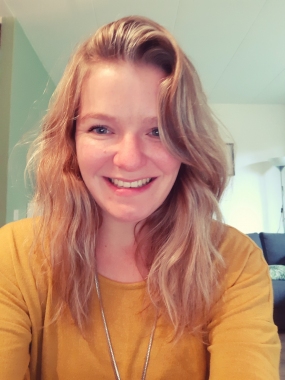
© dkfz.de
My name is Kim Boonekamp and I have joined the DKFZ in 2020 after being rewarded the DKFZ postdoctoral Fellowship in the Division of Functional Genomics in the laboratory of Prof. Michael Boutros.
After my PhD in the Netherlands it was time to gain some foreign research experience and the DKFZ serves as an excellent place to do so. The DKFZ offers a large number of core facilities to facilitate my research. Moreover, it is centrally located on the campus serving as a stimulating environment for interdisciplinary collaborations. Apart from being a fruitful research environment, DKFZ offers a large variety of courses not only about research related topics but also on career development including grant writing.
Despite the number of people employed by DKFZ, it still feels like I know many people through courses and collaborations. Combination of fundamental and translational research in one institute together with cutting-edge techniques serves as a platform for boosting my postdoctoral project. For me DKFZ and the lab of Professor Boutros are the perfect location to continue my scientific career after my PhD.
Chun-Shan Liu, Taiwan
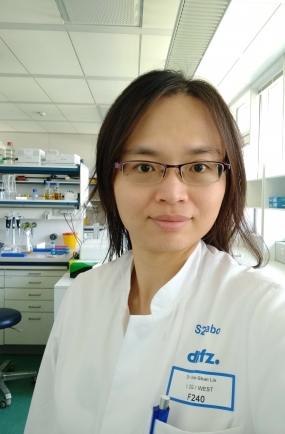
© dkfz.de
I am Chun-Shan Liu, form Taiwan, where I completed all my studies including my PhD. I joined the DKFZ in September 2018 as a postdoc in the Division of Cancer Epigenetics, headed by Prof. Dr. Christoph Plass.
Before I came to Heidelberg, I did not speak a single word in German, so I worried that the language would be a barrier in my daily life in Germany. After arrival, I realized I just overthought because people here are so kind and friendly.
The DKFZ provides many training opportunities not only for science but also for living and career development. Personally, I joined a language course that the DKFZ provided to learn some basic German. Besides, I also benefited from other trainings such as grant writing and career development.
The working environment here is amazing because there are core facilities and different research groups across different disciplines nearby so that we can employ multidisciplinary approaches. I also benefited from this diversity a lot, as I recently shifted to the division Experimental Hepatology, Inflammation and Cancer, headed by Dr. Michael Dill. This shift extends my research experience form epigenetic regulation to microenvironment alteration. I am very grateful that I can be part of the DKFZ and I really enjoy my work and life in Heidelberg.
Miki Kamiyama, Japan
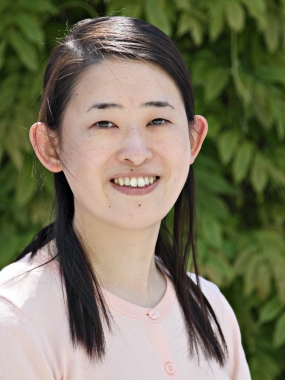
© dkfz.de
My name is Miki Kamiyama and I come from Japan, where I completed all degrees up to my PhD. I joined in Prof. Hellmut Augustin's lab, Vascular Oncology and Metastasis (A190), in October 2018 with great honour after receiving the eminent DKFZ postdoctoral fellowship.
To be honest in the beginning, coming to Germany as a postdoc sounded too challenging for me, especially in terms of language and communication. However, I didn't have such problems in Heidelberg (not even outside the DKFZ). The working environment in the DKFZ is very supportive even for non-German speaking scientists. As you already know, science cannot be driven by yourself alone and you will need various types of support from your collaborators, core facilities, management offices and so on.
In addition to driving my projects, I had so many things to learn like latest data analysis, grant writing and establishment of my career path; these were extensively covered by a series of excellent programs, courses and supportive teams at DKFZ. Such a resourceful environment helps me to expand my research capacity and my insight as a scientist.
Finally, I would like to thank all the people involved. This experience could never have been achieved without great help from Prof. Hellmut Augustin, who accepted me as a postdoc and all the supportive staff from DKFZ.
Susanne Lux, Germany
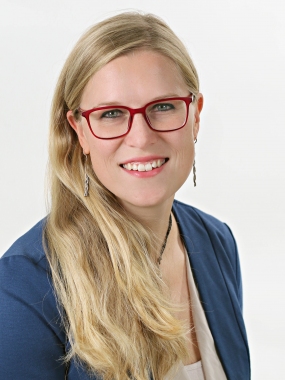
© dkfz.de
My name is Susanne Lux - most people call me Susi - and I am a Postdoc in Mick Milsom's group in the department of Experimental Hematology (A012) at DKFZ where I am working on a transcription factor that is modulating the DNA damage response in malignant cells. I joined Mick's group in September 2019 and very soon after I also joined the DKFZ Postdoc Network Committee (PDN) and became one of the PDN representatives.
The PDN has helped my onboarding at DKFZ a lot and I quickly got to know and got in touch with all the different useful institutions here at DKFZ, like the Postdoc Program Office, Advanced Training, the Equality Office and the Career Service. I met other Postdocs at our Postdoc Retreat and on the Heidelberg Christmas market and not only made new friends this way, but this interaction also resulted in a new collaboration for my lab.The DKFZ makes it very easy to communicate with colleagues, and so far, whenever I felt stuck in my project, I would meet someone who was able to help me.
In addition to the very stimulating high-level scientific environment, I value that the DKFZ also offers events and initiatives on other important topics, such as sustainability and mental health and stress management.
Santiago Cerrizuela, Argentina
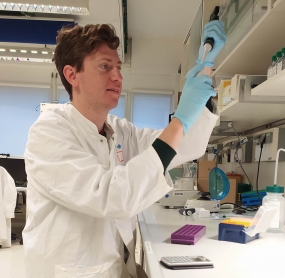
© dkfz.de
My name is Santiago Cerrizuela and I come from Argentina, where I did my PhD. My dream of living from what I love came true as soon as I reached Heidelberg to start my postdoc at the Division of Molecular Neurobiology at the DKFZ.
Given the fact that I come from Argentina, the process of applying to a position abroad was really tough, but at the end everything worked out. As soon as I entered the lab, I was amazed by the resources that the DKFZ has to offer to its scientists. Additionally, the environment in which I have been working has always been the best to flourish and develop your hard and soft skills. Our lab is nourished by the intercultural diversity present, with students from Spain, India, Turkey, Russia, Finland, Syria, China, Slovenia and Kazakhstan. Anytime I have any doubts or questions, the lab is there for me ready to support me.
As a researcher I learned here to value the breath of resources that are at my disposal, not only cutting-edge technological devices but also the ability to get advanced training in many areas, such as project development and hard biological skills.
On the networking side, I had and still have the opportunity to be part of the Postdoc Network Committee, which has allowed me to connect with other postdoctoral researchers and to learn a lot from them. We are constantly publishing our newsletter, which is a useful stage to show what we are doing and to inform about different scientific areas.
Lastly, the DKFZ has offered me the chance of co-coordinating the Virtual Career Day "Publishing", which is another playground on which I can develop my project management skills and which puts me in contact with many scientists across the globe. To summarize, I am really thankful to my PI and to the DKFZ for providing me this incredible opportunity to develop as a scientist and as a person.
Evangelia Tasouri, Cyprus
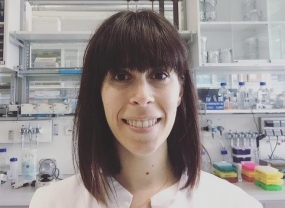
© dkfz.de
My Heidelberg adventure began before I joined the DKFZ for my postdoctoral studies as I decided to move from UK to Germany to pursue a PhD at the University of Heidelberg.
Throughout my PhD years I closely interacted with scientists at the DKFZ, attended seminars and Career Days held by DKFZ and it was inevitable not to recognize both the innovative research taking place in the institute with state-of-the-art techniques and equipment but also the efforts the institute itself puts into securing career and personal development for its people. Therefore it was clear for me that I wholeheartedly wanted to join this dynamic scientific environment for my postdoctoral studies. I joined the Group of Dr. Sandrine Sander in the Department of Adaptive Immunity and Lymphoma to functionally characterize signaling pathways in mouse models of B cell malignancies such as Burkitt lymphoma.
As a communicative personality myself I particularly enjoy the endless possibilities for internal collaborations and the ease with which researchers here share their expertise to help projects progress quicker. Besides the valuable experiences such a vibrant research community can easily provide to you on a daily basis, I also appreciate the opportunities to complement my personal career portfolio. Currently I am participating in the organization of a Career Day with a group of PhD candidates, fellow postdocs and precious support from the DKFZ Career Service and I am developing skills that I can easily transfer to the lab such as project management or effective communication.
If you decide to join DKFZ, don't be surprised to turn around while having lunch at the cafeteria only to find the scientific director of DKFZ sitting next to you genuinely asking about your experience in the institute, the hurdles you encountered and ideas on further improvement of the infrastructure or the advanced training courses provided. Here, at the DKFZ, constant progress in all aspects is both a goal and an achievement!
